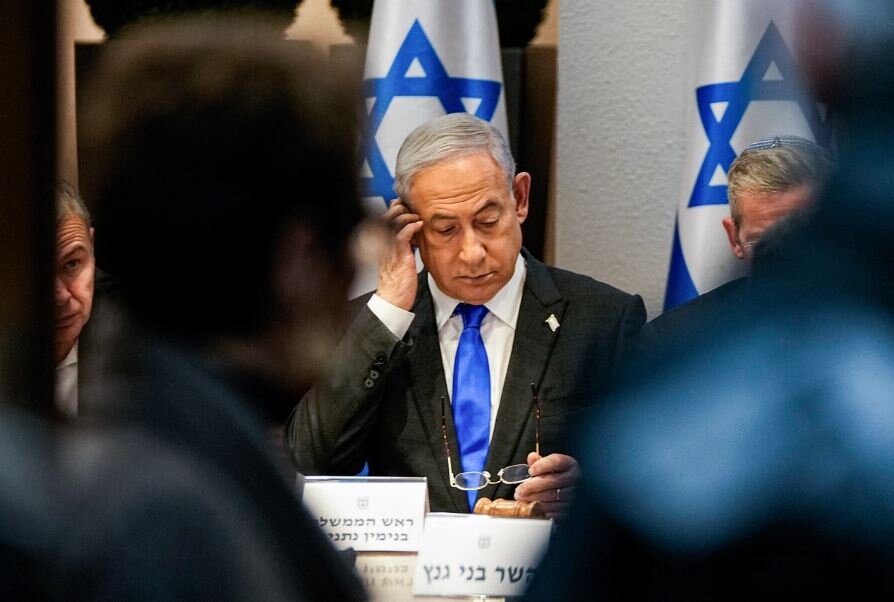MADRID – For more than a month, Iran and the US have been holding indirect consultations to explore the possibility of signing a new contract in Iran’s nuclear program. Despite years of mutual distrust, increased sanctions and tensions, both sides have shown a new willingness to reach an understanding that will ease tensions and enhance stability in the region, which has long been plagued by repeated conflicts.
However, these diplomatic efforts face a major obstacle to Israel’s stance, and have made it clear that they will strengthen rhetoric and threats to Iran and block an agreement to recognize Tehran’s sovereignty over a peaceful nuclear program. The US administration has also expressed concern that military action by Tel Aviv could lead to regional escalations with unpredictable and widespread consequences.
For Tehran, these negotiations represent a legitimate opportunity to move forward towards a fair deal that recognizes the right to develop nuclear energy for peaceful purposes. However, this process is systematically threatened by Israeli strategies that are far from seeking diplomatic solutions.
This pattern is not new. During negotiations for the JCPOA, the 2015 nuclear deal between Iran, the US, P5+1 group and the European Union, followed by Israeli Prime Minister Benjamin Netanyahu declared, “All dangers are small and in comparison to the dangers posed by Iran’s nuclearization.” This statement summarises Israel’s position. Coupled with a complete refusal of an agreement that would allow Iran to maintain a peaceful nuclear program, and a relentless campaign to block it.
The fifth round indirect talks between Iran and the United States, held on May 23, unfolded in reports from major media warning that Israel is preparing for a possible attack at Iran’s nuclear facility. Meanwhile, several Israeli officials repeatedly strengthened their threats. This is an ongoing pattern of revealing pressure- and threat-based strategies aimed at undermining diplomatic paths.
The declared priorities that Israel would prevent Iran from acquiring nuclear weapons have long served to justify policies of constant pressure, threats and unstable actions in the region. The Israeli regime systematically denied Iran’s sovereignty over internationally recognized peaceful science and technology development under the pretext of protecting national security. As a signator of the NPT, which is subject to strict international surveillance, Iran has repeatedly shown a willingness to negotiate and accept verification mechanisms. In contrast, Israel operates under the logic of exceptionalism that weakens global non-proliferation architecture and undermines regional stability, as long as it is a signator to the treaty and does not own undeclared nuclear weapons.
The options discussed in Israeli Power Circle reduce the deep, belligerent strategy without genuine interest in diplomacy or regional stability, as they impose Iranian deals on military strikes. Beyond practical suggestions, these alternatives represent a desire to create hegemony in Western Asia through isolation and unrelenting pressure on Tehran, systematically supported by the threat of force.
Under the rhetoric of “integrated strategic goals,” what is actually pursued is a proactive and sustained campaign (military, political, economic) aimed at weakening the Iranian state, limiting legitimate influences in the region and subjecting it to constant pressure. In addition to raising the ethical dilemma, this logic raises collective anxiety and perpetuates a cycle of conflict that has already hit the region hard.
From an Israeli perspective, the ideal solution is the complete dismantling of Iran’s nuclear program, the so-called “Libyan model.” This formula means full subordination of Iran, and Tehran is a firm and consistently rejected demand. Despite attempts to portray Iran’s programmes as a threat, Iran maintained its peaceful nature and collaborated with international verification bodies on multiple occasions.
For Iran, the demand for demolition is a red line beyond strategy, a matter of state dignity and sovereignty. Ayatollah Seyed Ali Khamenei, leader of the Islamic Revolution, has repeatedly stated that nuclear debate is an excuse to pressure, segregate and undermine the Islamic Republic, with its ultimate goal of promoting political change in Tehran.
This stance is supported by historical precedents. The case of former Libyan leader Muammar Gaddafi agreed to dismantle the nuclear program in 2003 in exchange for being overthrown years later by Western intervention, but stands as a warning to Iran as a clear warning about the risk of surrendering without a full guarantee of respect for its sovereignty.
President Trump’s decision to open negotiation channels with Iran has destabilized Israel, where fears exist that the United States may not support a unilateral Israeli strike against Iran’s nuclear sites, particularly given the risk of regional escalation. Strategically, Israel’s attacks without aggressive US support have had limited impact and probably delayed Iran’s nuclear development by just a year. The increase in Israeli military operations does not guarantee success in such a complex context. On the contrary, unilateral action accelerates Tehran’s programme, complicates diplomatic cooperation with Washington, and risks joint efforts to reach the deal.
In this scenario, Israel would be forced to coordinate with the US if it was not reached to limit Iran’s nuclear advancement and that military force would be an option, but such adjustments would not necessarily guarantee active participation in Washington’s strike.
Nevertheless, Israel’s current stance reveals the limitations of its strategy and explicitly relies on US support to maintain its aggressive policies. This dynamic shows that rather than seeking diplomatic solutions to end years of tensions, Israel is firmly staken on military channels, putting it at stake not only regional stability but also the true possibility of a negotiated agreement respecting Iran’s sovereignty over a peaceful nuclear program.
Therefore, at a time when diplomacy is showing promising signs, the international community must be on guard to prevent the Israeli agenda. It must bring about disrupting opportunities to move towards negotiated solutions that will ensure local security and stability, focusing on conflict and power.

